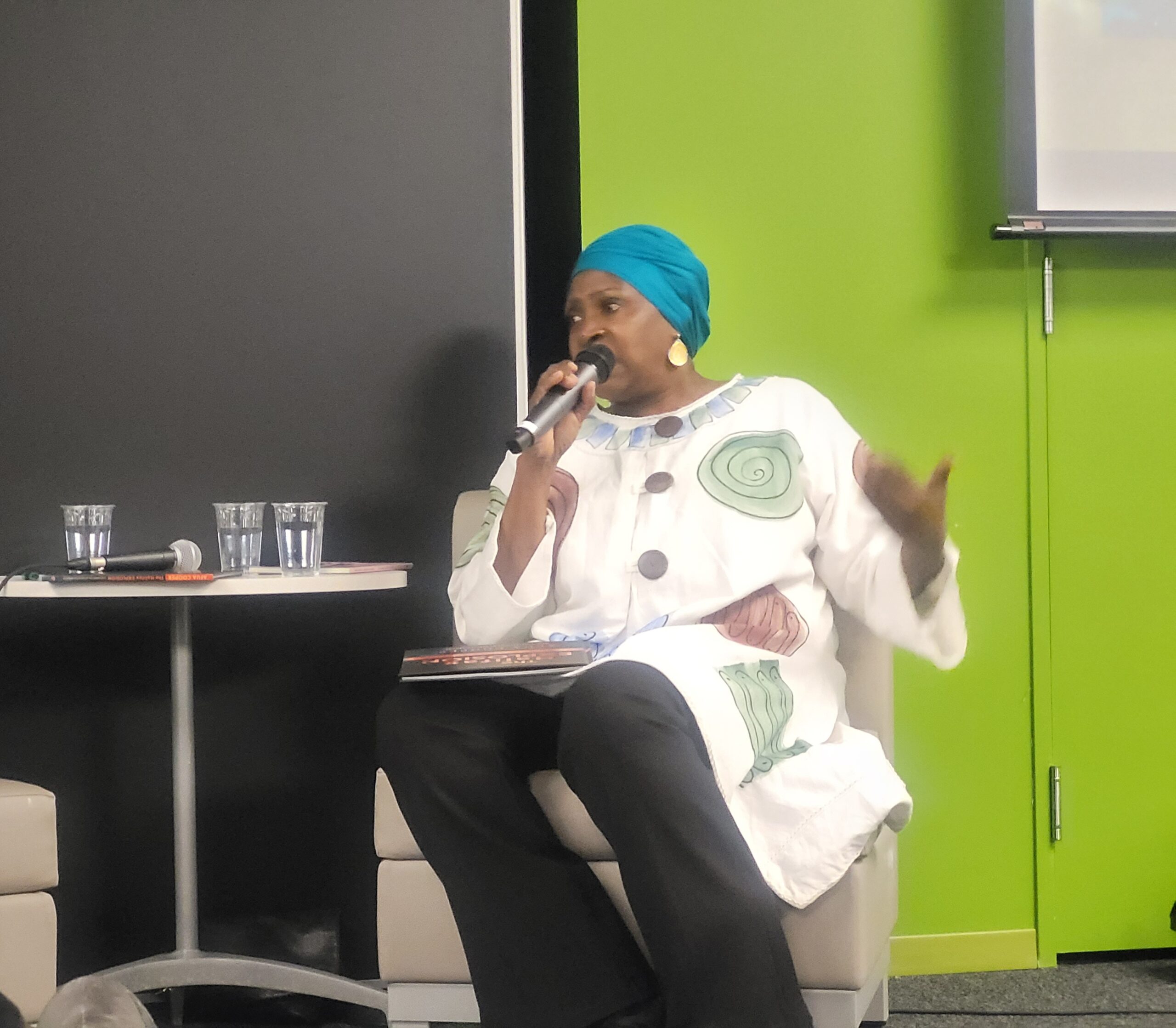Afua Cooper remembers those forgotten in Halifax Explosion
Halifax poet laureate launches new book commemorating Black victims of the Halifax Explosion

caption
Dalhousie professor and Halifax poet laureate Afua Cooper speaks at the launch of her book The Halifax Explosion at the Halifax Central Library.In a small room on the third floor of the Halifax Central Library, a crowd of more than 20 people gathered Tuesday night for the launch of Halifax poet laureate Afua Cooper’s latest poem The Halifax Explosion.
The crowd sat as they listened to Cooper discuss her work and perform excerpts from her new poem, which looked at the historic Halifax Explosion from perspective of the city’s Black residents.
The launch took place on the eve of the anniversary of the fateful explosion that occurred on Dec. 6, 1917, at 9:05 a.m., after two ships, one carrying munitions, collided in Halifax Harbour.
Cooper, a Dalhousie professor and an expert in Black history, described it as “part of the lore” of Halifax and a pivotal moment in the city’s history, and she took the opportunity to commemorate the tragedy and those affected by it.
The Black perspective
Cooper said there had been so much literature written on the topic of the Halifax explosion that it was practically a genre in itself and she felt it fit to add her voice to it. Her poem centred on the effects the explosion had on Halifax’s Black population, whose experiences, she says, are often excluded from retellings of the event.
“The Black experience … is often not there,” Cooper said. “It’s denied or when it does make an appearance it’s diminished.”
During her speech at the launch, she mentioned how in doing her research for the poem, she discovered that many Black Haligonians affected by the explosion who tried to get compensation from the city either had their claims denied or received lesser amounts compared to their white counterparts.
“They suffered like anyone else,” Cooper said, yet they suffered additionally due to the neglect of their city’s government. It is experiences such as these that she hopes to bring to the foreground with her poem.
Broadening perspectives
Hardcover copies of The Halifax Explosion were available for purchase at the back of the room at the end of the launch and attendees lined up to have theirs signed by Cooper.
One attendee who bought a copy was Meril Rasmussen, who afterwards praised Cooper not only as a writer and speaker, but also for bringing an often overlooked aspect of the explosion’s history to everyone’s attention.
“I had never heard any of those stories before, it’s amazing,” he said. “I’m looking forward to reading this book to my nieces and nephews.”
Josephine Muxlow, another attendee, called Cooper’s work enlightening. She was particularly struck by the parallels between how the city denied much of the Black population compensation following the explosion and the ways Black people are systemically disadvantaged today.
“This is 1917, but here we are still in 2023 and those inequities continue,” Muxlow said. “Although we have moved the needle, really and truly we have not moved the needle.”
Like Rasmussen, she thinks it is important to tell these stories as a reminder to Nova Scotians, who may have only learned about the explosion from a single perspective, that there was more than one group affected and their loss and pain should be acknowledged as well.
About the author
Karsten Greene
Karsten Greene is a Master of Journalism student at King's. He's passionate about storytelling and hopes to make a difference through it.
